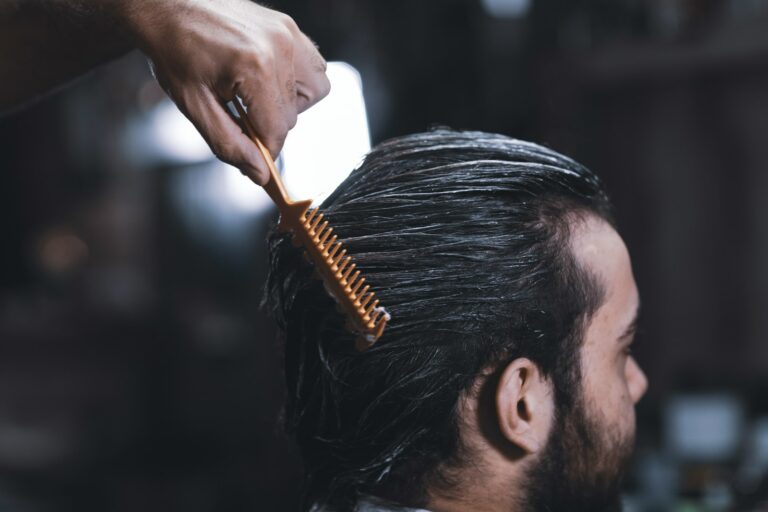Explore More
Self-Awareness: Healing Men’s Childhood Wounds
Research shows that childhood trauma can lead to mental health challenges, substance abuse, and deep scars with devastating effects in adulthood. Self-awareness helps healing childhood wounds and is crucial for our relationships, self-esteem, and overall wellbeing.

Our childhood experiences shape us. They impact our relationships, self-esteem, and emotional well-being. Recognizing and healing those old wounds is a courageous journey toward self- awareness and healthier connections. Often overlooked, men’s wellbeing is rapidly declining while suicides increased 35 percent from 1999 to 2018. To surmount these obstacles, a change in societal perspectives, along with individual reflection and self-awareness are required.
Healing childhood wounds are crucial for our relationships, self-esteem, and overall wellbeing. Research shows that childhood trauma affects both men and women. It can lead to mental health challenges, substance abuse, and deep scars with devastating effects in adulthood. It’s vital to remember that seeking help is a sign of strength, not weakness. Childhood wounds and their impact on self-awareness are crucial topics of scientific research in psychology and wellbeing.
Childhood Trauma and Wellbeing
Prevalence of Childhood Trauma: According to the Substance Abuse and Mental Health Services Administration (SAMHSA), millions of children in the United States experience various forms of trauma, such as abuse, neglect, or household dysfunction. In 2018, an estimated 678,000 children were victims of abuse or neglect.
Adverse Childhood Experiences (ACEs): The Adverse Childhood Experiences Study (ACEs) conducted by the CDC and Kaiser Permanente found a strong correlation between childhood trauma and negative health outcomes in adulthood. ACEs include experiences like abuse, neglect, or household dysfunction.
Long-Term Impact: Scientific research indicates that childhood trauma can have profound and lasting effects on well-being. These effects may include increased risk of mental health disorders, substance abuse, physical health issues, and even reduced life expectancy.
Neurobiological Changes: Trauma can affect the developing brain, leading to changes in brain structure and function. These changes may impact emotional regulation, memory, and the ability to cope with stress.
Emotional Regulation and Self-Awareness: Childhood wounds can hinder the development of emotional regulation skills and self-awareness. Adults who experienced trauma as children may struggle with recognizing and managing their emotions, which can affect their relationships and overall well-being.
Therapeutic Approaches: Various therapeutic approaches, such as trauma-focused therapy and mindfulness-based interventions, have been shown to help individuals with childhood wounds improve their self-awareness and coping mechanisms.
The path to Self-Awareness and Healing
Scientific evidence supports the positive impact of self-awareness on healing childhood trauma, making it a crucial aspect of the process emotional regulation. Here are the easy steps you can take every day to self-heal.
Setting Boundaries and Self-Compassion: Setting boundaries is an act of self-compassion. It shows that you value your own well-being and emotions. By maintaining these boundaries, you create a safe space for personal healing and growth. Setting boundaries is a practical expression of self-compassion, ensuring you protect and nurture your emotional health.
Self-Reflection: Self-awareness involves the ability to reflect on one’s own thoughts, emotions, and behaviours. This is a crucial step in healing from childhood wounds.
Mindfulness and Meditation: These practices can help individuals become more in tune with their emotions and sensations, which is essential for self-awareness.
Resilience: Building resilience is vital in overcoming childhood wounds. Resilience helps individuals adapt and grow despite adversity.
Challenging Negative Thoughts and Healing from Childhood Trauma
Childhood trauma can leave lasting scars, often manifesting in the form of negative self-beliefs that can be deeply ingrained, like feeling unworthy or unlovable. However, it’s crucial to recognize that these beliefs are not immutable truths. They are distortions born from painful experiences that need to be challenged and reframed for healing to occur.
Identifying Negative Thoughts The first step in this transformative journey is identifying those negative thoughts. Self-awareness is your ally. Pay attention to moments when you’re critical of yourself or experience self-doubt. Try to pinpoint the underlying beliefs that trigger these thoughts.
Questioning Their Validity Once you’ve identified these negative beliefs, it’s time to question their validity. Ask yourself, “Is this thought based on evidence, or is it a product of past experiences?” Often, these beliefs have been carried from childhood, and they no longer serve your well-being.
Replace with Positive Affirmations Now, it’s time for a shift in perspective. Replace those negative thoughts with positive affirmations. For example, if you’ve felt unworthy, counter it with affirmations like “I am worthy of love and respect.” These affirmations are like seeds of self-compassion.
Gather Contradictory Evidence To reinforce these positive affirmations, gather evidence that contradicts your negative self-perception. Seek moments in your life when you have been loved, valued, or achieved success. These instances serve as proof of your worth and lovability.
Healing from childhood trauma is a courageous journey, and it’s perfectly acceptable to seek support. Remember, challenging and reframing negative self-beliefs is a process that takes time and patience. But as you release the weight of these false perceptions, you create room for self-compassion and a healthier, happier you. You are not defined by your past; you have the power to shape your present and future with love and self-worth.
The Bottom Line
Childhood wounds and their impact on self-awareness are significant areas of study in psychology and mental health. Scientific evidence demonstrates the lasting effects of childhood trauma on well-being, making it important to address and heal from these wounds through various therapeutic and self-awareness practices.



